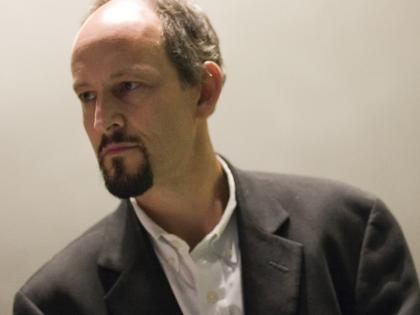Editor’s note: In the aftermath of the adoption of a new honor code for Harvard College by the Faculty of Arts and Sciences, Suzanne Smith, lecturer in history and literature, submitted the following perspective based on her research and conversations with current undergraduates.
On May 6, the Faculty of Arts and Sciences approved an honor code for Harvard undergraduates. With that gesture, the University closed ranks with almost all its peer institutions. Honor codes, integrity pledges, and conversations about building what is commonly called “a culture of academic integrity” are currently rampant at colleges and universities. Thus far, this project has largely been driven by administrators. At Harvard, the faculty has now endorsed it as well.
What do the students whose culture is theoretically being rebuilt think about these developments? More broadly, is the recent interest in honor codes a sign of a deep underlying shift in the understanding of the purpose of higher education? Or is it just another episode in the long history of attempts by institutions to apply a makeshift bandage to a perpetually open wound that, short of radical surgery, is unlikely ever to be healed?
Reviewing the history of what we call “academic integrity” in the elite American research university, the opinions of students today, and the prospects for academic integrity at Harvard may provide us with some sense of what has changed, what hasn’t changed, and what is unlikely to change in the future.
"An Abiding Character"
In 1901, LeBaron Russell Briggs, then a dean of Harvard College, observed that it sent its graduates “into the world with no more than a warrant that they were presentable intellectually.” In admitting to the modesty of the warrant in question, he was not making a confession. To his mind, the “unwritten and unspoken purpose” of the College was “not so much intellectual as moral; and her strongest hope is to stamp her graduates with an abiding character.” As he would have it, “the standing of a college in the community and the effect of a college in the country depend upon the personal character of its undergraduates.” Cheating and plagiarism were understood to violate not some specialized variant of integrity labeled “academic integrity” but rather “the ordinary rules of right living.”
Briggs’s approach typified a common understanding of the problem of academic dishonesty that figured in American higher education in the first half of the twentieth century. Harvard stopped grading students on their conduct in 1869, but in the early 1900s academic dishonesty was still seen as a moral problem requiring a moral solution. Briggs considered it a particular task of the college administrator to convey lessons derived from experience in talking with students about the moral risks of undergraduate life. Writing in 1904, he sought to refute the notion that college was a time of licensed lawlessness in “a fairyland of charming foolery,” populated by students “no more morally responsible than the gods of Olympus.” For Briggs, “the man who has his [essays] written for him, or who cribs at examinations…may be clever and funny to read about, but his cleverness and ‘funniness’ are not many degrees removed from those of the forger and imposter, who may also be amusing in fiction.”
As Briggs saw it, the problem was not that students lacked a sense of “the ordinary rules of right living,” but rather that they did not think those rules applied to their interactions with their teachers: “We know [students] capable of distinguishing truth from falsehood, since their standard of integrity for their teachers is sensitively high.” If, however, the College could not convince students to apply that same standard to themselves, the very purpose of college would be at risk because the meaning of a college education, to his mind at least, was not intellectual but moral.
Toward "Academic Integrity"
Between the early twentieth century and the early twenty-first century, “academic integrity” gradually assumed the role previously assigned to moral integrity. (Space prevents my detailing the reasons here.) Within the rubric of academic integrity as it is often minimally defined today—as a policy concerning and stipulating the avoidance of institutionally defined violations of scholarly practice—the question of moral meaning and motivation is obscure. Does it really matter why one practices academic integrity as long as one practices it? Students who consult the section on “academic dishonesty” in their student handbooks, and studiously avoid doing anything faintly resembling the things that it describes, will not hinder their advancement toward graduation. Individual motivation, however laudable or blameworthy, is ultimately beside the point. But when academic integrity is defined as a matter of honor that has significance beyond as well as within the classroom, motivation matters enormously. To this day, schools that retain strict honor codes (such as Wellesley College) show little reluctance to have their students pledge to “dedicate” themselves to lead particular sorts of lives, not just to act a certain way as undergraduates.
Having said that, no current dean of an elite academic institution in his or her right mind—even a dean at a school at which students pledge to lead lives of honor—would likely suggest, as did Dean Briggs of Harvard, that its graduates should be morally exceptional yet merely “presentable” in intellectual terms. To be sure, colleges still invoke some version of “personal character,” but they tend to do so with reference to the aim of creating knowledge rather than the furtherance of morality. Harvard is a case in point. The “Academic Integrity” page on the College’s website announces that “Harvard College embraces the values of ‘diligence, high aspiration, mutual concern, and personal integrity’ that President Drew Faust has described as ‘the foundation of what we as an academic community exist to do and to be.’ We view a commitment to academic integrity as the basis for intellectual discovery and artistic creation.” Here, “personal integrity” seems to be part and parcel of the larger complex of values that is “academic integrity”; the latter is understood as a condition of intellectual and artistic aims, the moral status of which is left unstated. Should one turn to Harvard’s undergraduate handbook for further information, at least as of this spring, one finds a section on the rules pertaining to academic dishonesty but nothing on academic integrity, much less personal integrity. This omission is neither surprising nor troubling: anyone who looks to student handbooks for probing, in-depth discussions of topics of theoretical, historical, and moral interest more or less invites disappointment, absent a scholarly interest in the genre of bureaucratic prose.
Studying with "The Mind of a Lawyer"
Do Harvard students really have little interest in academic integrity as anything more than a set of rules? Conversations with students suggest otherwise. They also suggest, however, a perceived gap between the way in which the College has approached the matter and the way in which students understand it. Comments by Darcy Donelan ’14 offer a window into what students think about the way that Harvard treats issues of academic integrity:
I think academic integrity is difficult to define because its definition and framing has changed so dramatically throughout my schooling. Originally, in middle school and high school, it was framed and defined in terms of morality. Having academic integrity was a reflection of your character and thus, if I were to have been academically dishonest I would have seen myself differently. The repercussions were self-inflicted and I knew that I would be “selling myself short” or “cheating myself” were I to be academically dishonest. When I came to college, academic integrity took on a really different meaning and discussions about academic integrity had a very different tone. People no longer discussed the morality or personal aspect of it but rather the repercussions and consequences if caught. The tone was now distinctly more negative. College promoted an environment of fear. The rules regulating academic integrity were spelled out like law documents and I often felt that were I to forget a comma or a footnote I would be “caught” and “punished.” Whereas in high school and middle school I was confident in my academic integrity because I was confident in my own judgment and morals, in college I have felt the need to go through my work with the mind of a lawyer so as to avoid punishment based on minor and unintended infractions.
Despite their varying ideas about just what needs to be done, all but one of the students I have spoken with feel that a more “positive” approach to academic integrity is in order at Harvard. In the words of Tiana Raphel ’16, “It has to be presented with a positive message instead of the scary punishment message that it has now.” Yet at the same time, students acknowledge that, depending on the context, fear may be a good teacher. Edward de Fouchier ’14 remarks:
I think our conceptions of academic integrity are largely shaped in high school. In my case, coming from a rigorous and quite rigid French education system, high school was an environment where cheating was treated pretty much like a crime. This probably did instill my classmates and me with the fear of cheating rather than moral repugnance to engage in it (though I will say it was effective…). Cheating at a baccalaureate examination in France makes you ineligible to take it again for several years, and I remember my high-school teachers sometimes walking between our tables in class to verify we didn’t have our books open on our laps. I think the main reason strict discipline comes before personal integrity in France is because our teachers really avoided becoming close to us. They were disciplinarians and bastions of knowledge before being all-around educators. In the United States, I have the impression that’s different. High-school teachers are supposed to be friends and mentors. This perhaps makes pupils more reluctant to cheat for different reasons, that have more to do with the relationship they have with their educator.
Relationships between students and their teachers and mentors that are characterized by trust, caring, and respect may provide an alternative or at least a supplement to fear, which would seem crucial if the aim is not just to increase the effectiveness of academic-integrity policies, but rather to change the culture, and hence, the mindset concerning academic integrity itself.
A striking number of students make some version of the claim that, in the words of Laura Bleeke ’16, “academic integrity is just another form of moral integrity.” A number of students, however, remark that academic integrity “doesn’t really have personal meaning to me.” Yet some students who remark that academic integrity does not “mean” anything to them also observe that they practice it anyway. What the new honor code will do for students who already practice integrity without attributing any meaning to it is not apparent.
Is the lack of “meaning” actually a problem? If academic integrity is a purely functional concept that has no meaning apart from institutional rules, then perhaps not. But students do not seem to think that the significance of academic integrity expires at graduation. As Carl Fernandes ’16 remarks, “If you’re OK with doing something dishonest academically, that can be a gateway to other forms of dishonesty.” In a related vein, a member of the class of 2014 sees academic integrity as being a distinctively social notion. She observes that “academic integrity implies respecting the contributions of others to the field in which you are working, by acknowledging the presence of their ideas and research in your own work.” For this student, “Lack of academic integrity is a kind of theft, whether its victim be an academic or a fellow student.” To her mind, however, the problem of theft is not one that lends itself to purely procedural or moral solutions. She remarks that “Imparting the importance of academic integrity requires a cultural change, more than a structural one.” The “cultural change” that she envisions takes place within the classroom, both in terms of curriculum design (which, she suggests, should reward original assignments on which one can’t cheat more than “assignments that simply accurately reflect the material presented in class”) and pedagogy. She suggests that teachers should discuss the topic of academic integrity at some length in the classroom, a suggestion that is not likely to be popular among faculty. As a colleague from another school remarked to me during a conversation on this topic, “I was not hired to teach morality. I am a trained specialist.”
Can Harvard "Teach Morality"?
If Harvard were to elect to “teach morality,” how would it do so in a way that would be consistent with the mixed moral messages of the new honor code? That code splits the difference between an academic-integrity policy based on trust and honor, on the one hand, and one based on external surveillance, on the other. If “honor” is understood, to borrow the words of political scientist Robert Eden, as “a moral substitute for external supervision,” then it would seem that the new honor code, which entails the proctoring of exams, is not strictly concerned with honor to begin with. Yet honor has historically taken on new meanings and will continue to do so. And as the proposal for the new code rightly notes, the success of the honor code initiative depends upon its acceptance by students.
Although students express interest in strict honor codes as a matter of principle, they see the point of taking a “mixed” approach in terms of practice. “Honor codes are a good idea,” says Allison Giebisch ’16, “but there has to be a combination of an honor code and enforceable rules—honor codes help to internalize these values, and rules provide external force.” The primary takeaway from conversations with students, however, is that codes and rules are important but ultimately not enough. Something more—specifically, something pertaining to the moral and intellectual meaning of academic integrity—is needed. In the end, the new honor code may not signify a deep underlying shift in the understanding of the purpose of higher education, but it is a step in the right direction.








